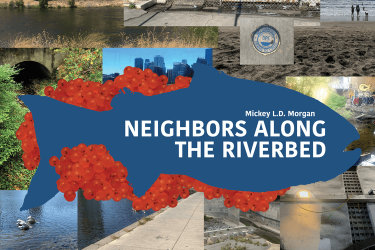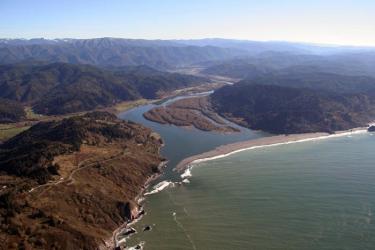The Center’s Conservation Biology Division Genetics and Evolution Program uses molecular genetic tools to support research and monitoring projects across the Center and beyond.
Molecular genetics includes tools that survey DNA, RNA, and other biological molecules from animals and the environment to evaluate biological diversity. Advances in ‘Omics - a modern, high throughput suite of cutting-edge tools used to analyze DNA, RNA, proteins, or metabolites - have revolutionized biological study, benefitting many fields, including public health, medicine, agriculture, and conservation.
Our Molecular Genetics Team uses these tools to understand biodiversity and adaptation in marine and anadromous organisms (including protected species), abundance and distribution of marine organisms using environmental DNA (eDNA), and diet and health of marine organisms. Additionally, the Center’s Genetics and Evolution Program supports the NMFS Office of Law Enforcement as the Marine Forensics Laboratory.
Our Science
We work in a number of research and science support areas, including:
- Genetics of marine and anadromous fish species, including genetic stock identification.
Sampling for environmental DNA in the Snake River basin in central Idaho. Credit: NOAA Fisheries - Genetics and genomics of protected marine mammal species.
- Molecular forensic identification of casework specimens submitted by NMFS Office of Law Enforcement field agents.
- Genetics and genomics of deep sea corals, which serve as essential fish habitat in our oceans.
A rockfish nestles among a variety of corals and sponges on Mendocino Ridge. Credit: MARE, DSCRTP - Assessment of species abundance and community diversity using environmental DNA (eDNA), or the use of molecular tools on DNA found in water samples, as animals shed their cells into the water.
- Assessment of the diet and health of marine animals.
Our Toolbox
We use a number of molecular tools and approaches:
- Genotyping by sequencing, in support of genetic stock identification (GSI) and parent based tagging (PBT) in salmonid and other protected species, and cryptic species identification.
- Environmental DNA: targeted species quantification and DNA metabarcoding for relative abundance of species in support of marine species surveys and population abundance assessments.
- Whole genome and reduced representation genome sequencing to evaluate inbreeding, genetic diversity, molecular population genetic structure, and signatures of adaptation.
- Sanger sequencing for species identification for forensic identification of specimens, and limited population of origin questions from targeted eDNA samples.
About Our Team
Our team is a diverse group of scientists, working collaboratively within the Center and with external partners, including the University of Washington Cooperative Institute for Climate, Ocean, and Ecosystem Studies, other NOAA Fisheries Science Centers, and Department of Fisheries and Oceans Canada.

